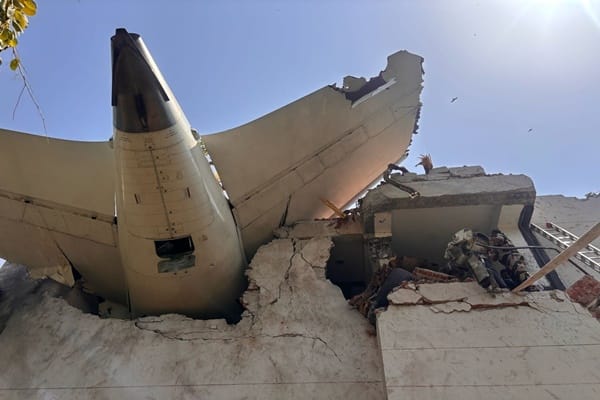Last Updated on June 17, 2025 1:23 am by INDIAN AWAAZ
Staff Reporter / New Delhi
The Communist Party of India (Marxist) has strongly criticised the Union government’s decision to set up a High-Level Committee (HLC) to investigate the tragic Air India AI-171 crash in Ahmedabad, calling it a move that undermines the authority and independence of India’s official aircraft accident probe agency — the Aircraft Accident Investigation Bureau (AAIB).
The CPI(M) has demanded that the HLC’s terms of reference be immediately revised to remove any overlap with the ongoing technical investigation being conducted by the AAIB, in accordance with international aviation norms established under Annex 13 of the International Civil Aviation Organization (ICAO).
“The government must not supplant or interfere with the AAIB’s independent probe. The cause and circumstances of the AI-171 crash must be determined solely by aviation experts and not by a parallel bureaucratic body,” the party said in a sharply-worded statement.
AAIB’s Mandate Under Threat
The AAIB, a statutory body established precisely to ensure transparent and expert-led air crash investigations, has already begun its inquiry into the crash. It has taken possession of the black boxes, flight data, and other technical evidence and is coordinating with aircraft manufacturers, engine companies, and international aviation authorities as per protocol.
However, the government’s unexpected formation of a separate HLC, chaired by the Union Home Secretary, with overlapping objectives — including identifying the “root cause” of the crash and interacting with global aviation bodies — has raised concerns about bureaucratic interference and potential erosion of investigative credibility.
The CPI(M) warned that such dual investigations could compromise the integrity and independence of the AAIB, which was specifically created to be free from political or administrative influence in matters of air safety.
CPI(M): Focus on Policy Reforms, Not Technical Findings
Rather than investigating the technical causes of the crash — which is the AAIB’s responsibility — the CPI(M) suggested that the HLC redirect its focus toward long-term aviation safety reforms, particularly on urban encroachments and construction norms near airports.
The party noted that in the case of the Ahmedabad crash, the proximity of densely populated areas and major medical facilities to the crash site could have resulted in far more devastating ground-level casualties. “It was only by sheer luck that more lives were not lost on the ground,” the CPI(M) noted.
The party urged the government to empower the HLC to examine past crash reports, including those involving near-misses or encroachments, and to draft binding safety guidelines for land use, zoning, and urban planning around Indian airports.
Concerns Over Politicisation of Air Safety
The CPI(M)’s stance reflects growing unease among aviation experts and civil society that the government’s decision could set a dangerous precedent — one where political or administrative bodies assume authority over technical investigations, thereby politicising a domain that should remain entirely professional.
“If the government’s high-powered committee interferes in technical determinations, it raises serious doubts about impartiality and transparency. This goes against the ICAO’s core principles and the very reason the AAIB was created,” said a senior aviation analyst who supported the CPI(M)’s position.
High-level committee probing AI plane crash holds first meeting

The first meeting of the high-level committee set up by the government to investigate the Ahmedabad plane crash was held in New Delhi today. The committee was chaired by the Union Home Secretary Govind Mohan. The members of the high-level multi-disciplinary committee including Secretary Ministry of Civil Aviation, Senior Officials from Home Ministry, Officials of Home Department and State Disaster Response Authority of Gujarat, Police Commissioner of Ahmedabad, Director General of Inspection and Safety in the Indian Air Force and Director General of Bureau of Civil Aviation Security also attended the meeting. The panel will submit its report within three months which is expected to focus on formulating Standard Operating Procedures for preventing such occurrences in the future. A separate investigation is also being carried out by the Aircraft Accident Investigation Bureau, which is looking into the technical aspects of the crash.
Air India’s Boeing 787-8 Dreamliner aircraft operating a flight from Ahmedabad to London Gatwick, crashed soon after the take-off last week. Only one person survived out of the 242 people on board the plane.

